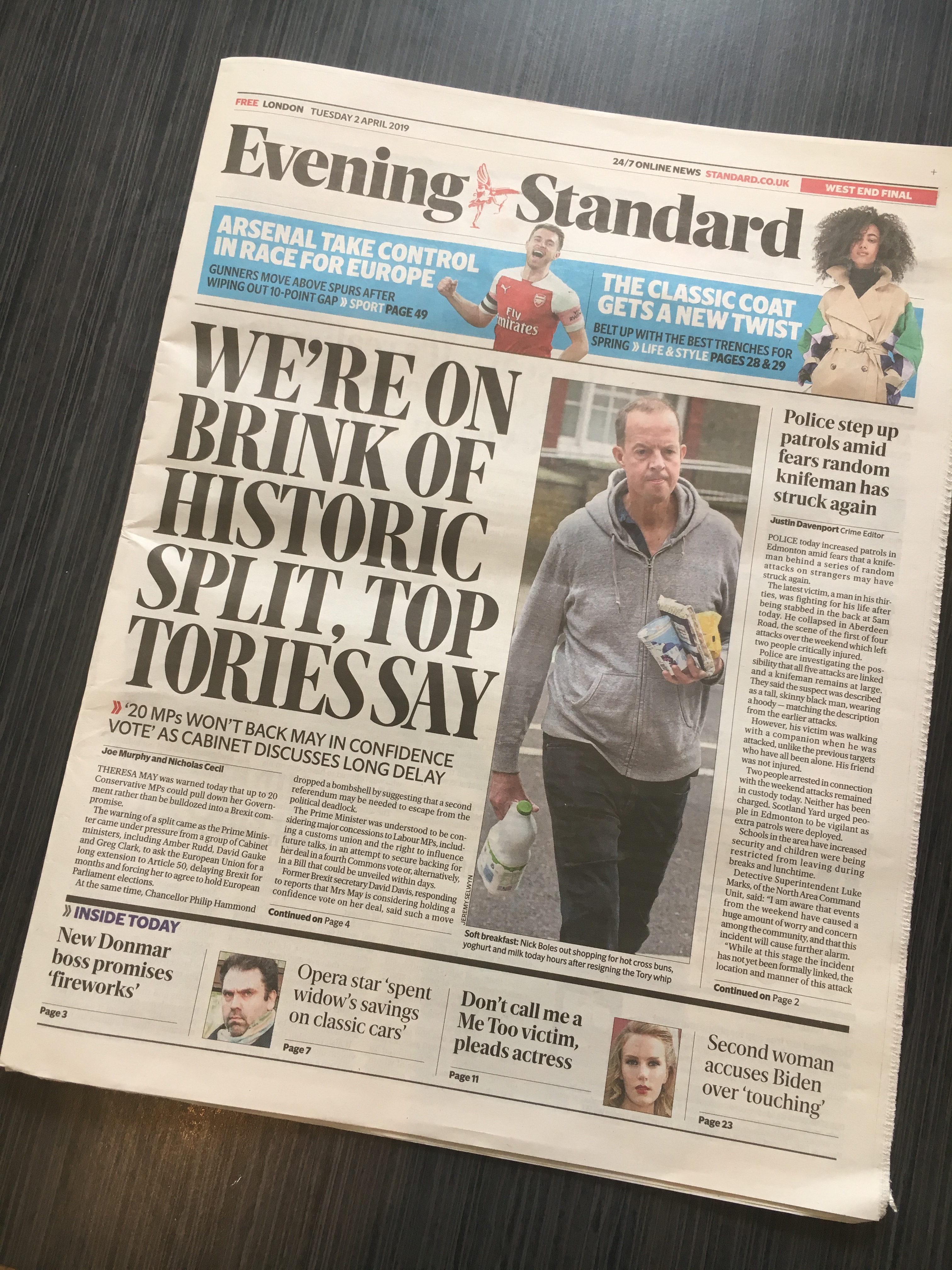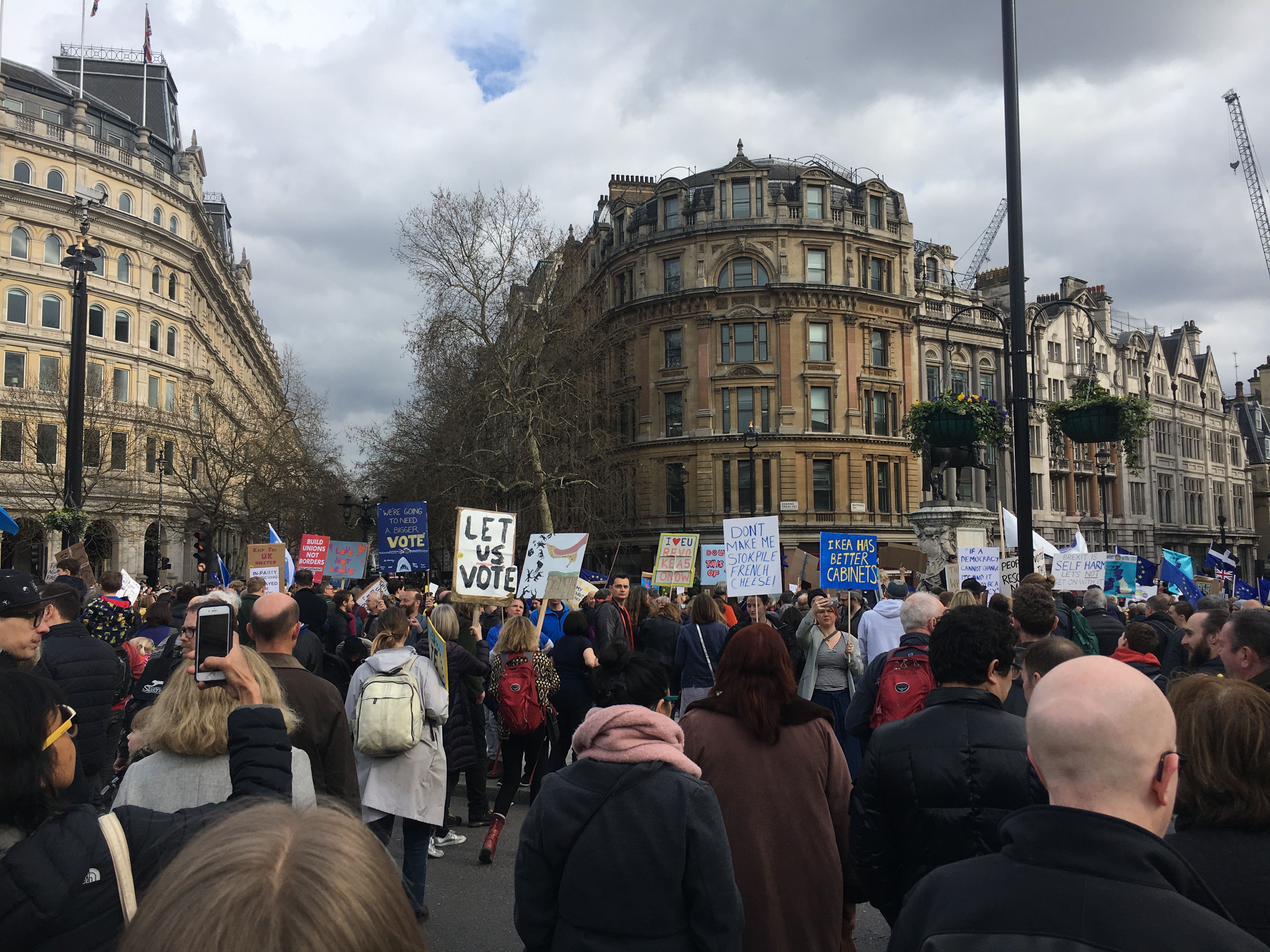It’s easy to take London for granted. On either bank of the Thames, only minutes from my flat, there are wide paths for pedestrians, bikers, and runners alike; these paths, free from vehicles and road crossings, also offer some of the best views in the city. There’s the London Eye and the Southbank Centre along one bank, and directly across the Thames you’ll find the Elizabeth Tower and Big Ben (though currently under scaffolding, the tower still dominates the London skyline), Westminster Abbey, and of course, the Houses of Parliament.
While it is easy to take these sights for granted after several months abroad, it is considerably more difficult to escape the significant events taking place right in my backyard. If you’ve been following British politics in recent months, you will have heard plenty about Brexit, Theresa May, and the European Union. In fact, I can’t even walk home from class without being offered a copy of The Evening Standard – London’s free evening newspaper – at no fewer than four intersections along my route (and since my arrival in January, I have yet to see a single copy of the Evening Standard that fails to feature an article about Brexit on its front page). In recent weeks, especially leading up to the (eventually postponed) March 29 “hard Brexit” deadline, it wasn’t uncommon for the paper to devote over half its space to Brexit.

I should clarify that I am not a super political person. I always want to know what’s going on – whether that is back home in the United States or here in London – but I typically do not seek out political debates with friends or family. Here in London, though, it is not just the politically-focused individuals involved in the Brexit debate – it is everyone. And as a resident Londoner (albeit a short-term resident), I find myself learning about Brexit and the British government more and more on a daily basis. Take last Saturday, for example; an anti-Brexit march, attended by hundreds of thousands of people, paraded along Trafalgar Square, through Westminster, finally congregating in Parliament Square. There were young children on the shoulders of their parents, holding cleverly-worded signs referencing Theresa May and the European Union (some of which were decidedly less flattering than others!). Though I was only a spectator, my walk home through Trafalgar Square gave me an idea of how polarizing this issue has been for Londoners and for UK citizens.

This has been one of the truly unique and valuable aspects of study abroad – not Brexit itself, per se, but the opportunity to learn about a major political event in the same way as a resident Londoner. We still take notes on the British government in class, but these lectures are supplemented with a Brexit panel debate hosted at a local university and a tour of Parliament itself. Rather than reading about the latest Brexit vote online, we can wait in Parliament Square and listen to a live feed of John Bercow announcing the vote tallies in the House of Commons (Bercow yelling “order!” on the House floor is almost comedic, at times).
London is a special place, and because it is the capital of the United Kingdom, it will always be an important city in global politics. But especially during the Brexit debate, London seems to be in the global spotlight on a regular basis – and there is no better time nor place to learn about foreign politics than in London this spring! Keep an eye out for what happens on April 12 – will the UK actually leave the European Union? Will Brexit get delayed, or cancelled altogether? I’m as clueless as everyone else, but I am certainly enjoying the adventure.
Cheers from London,
Seth



